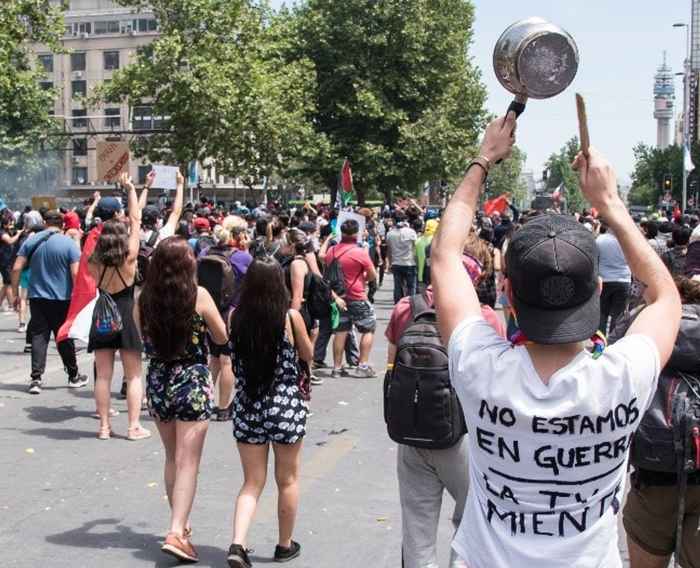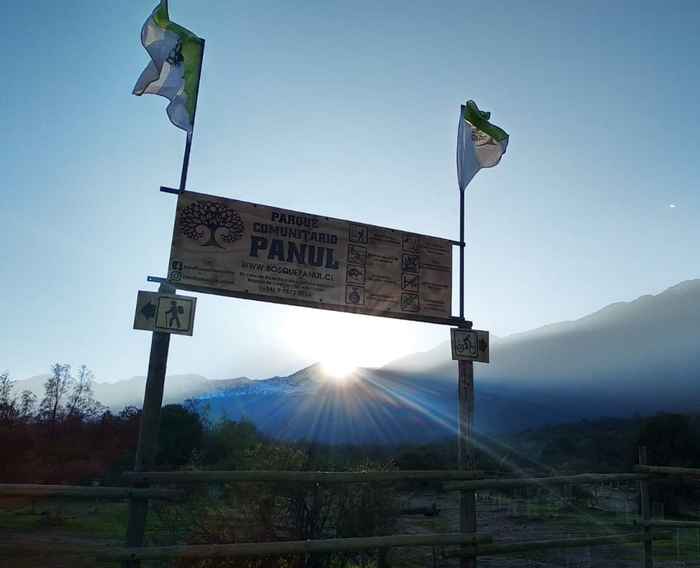Urban-environmental conflicts and Covid-19 in Chile
A short reflection on a research exchange | by Ricardo Fuentealba
This prompts the question of what citizens, communities and movements are actively and collectively doing to transform their environments. What kinds of conflicts and practices emerge as a result of such actions, and how are these transforming urban spaces? Is there a space for alternative logics of coordination (e.g., based on the commons), when the cities’ actual politics exclude its citizens to benefit progrowth actors instead?
It is with some of these questions in mind that I participated in a visiting position at the Instituto de Estudios Urbanos y Territoriales from the Pontificia Universidad Católica de Chile (IEUT-PUC), funded by the Centre for Urban Studies (CUS) seed grant scheme. I aimed to participate in a research project on urban environmental conflicts in Santiago following a post political framework, with Caroline Stamm as the principal researcher (see here for more information). I was very excited for this opportunity, which was going to take part between April-June 2020. That moment was critically and personally important.
The Chilean people took to the streets in October 2019 to challenge political institutions and demand to live with dignity. After years of living in Amsterdam, going back to my hometown to research and network on urban-environmental issues, was an amazing opportunity. PhD trajectories can be lonely instances, going through many periods of feeling lost, experimenting with thinking and doing, reading and writing, which can be disheartening and challenging. I was happy to organise my agenda to visit Santiago and go to a temporal office to work and establish new networks.

However, the Covid-19 pandemic came and changed my plans. On top of the post-October social upheaval in Chile, I had to experience at a distance the effects of the pandemic on familiar spaces. Luckily, I was able to travel to Santiago on November 2020 to start this visiting position. At that point, due to my commitment to finishing my PhD thesis, I managed to work with Caroline Stamm on a very flexible basis. This meant that the three-month visit ended up being a very long process lasting up to October 2021. This flexibility was key for me to manage to finish my thesis as well as to participate in the project. Based on document analyses, particularly on the judicialization of some urban-environmental conflicts, newspapers and policy documentation, and especially following urban frameworks I developed for my thesis, I proposed to analyse critically the spatially heterogenous character of such conflicts. In addition, (virtual) interviews complemented the analysis by bringing the point of view of long-standing activists in regard to their engagement and views on the political moment of Chile.
The ongoing analysis shows a critical snapshot of the difficulties faced by urban-environmental movements. There is an important geographical and temporal variance in the ways in which conflicts develop within Santiago, not only due to the institutions that participate (e.g., the relative role of planning instruments, multi-level institutions or kinds of private actors) but also for the strategies followed by local organisations. In their view however, while conflicts can spur some attention to their cause from wider audiences, they generate scant changes on the ground. This has some ambivalence for the potential transformation of urban environments. Protesting and mobilising critical discourses and practices can, at best, delay or stop some urban development projects – but their goals of developing more inclusive and sustainable spaces still look far away.
Our comparative analysis of Santiago’s urban-environmental conflicts shows, in the end, another façade of its unequal and segregated character. But there is still hope from the interviewees. As a result of the October 2019 protests, a new constitution for Chile is being written at the moment – which will replace the 1980 one, written during Pinochet’s dictatorship (1973-1990). Therein, discussions on equality and sustainability are taking centre-stage. Although complex, interviewees recognise the open discussion that can lead to changing the logic of urban-environmental production and from where another city can emerge. They balance a realistic pessimism with a hopeful optimism for the future.

Ultimately, in spite of all difficulties, the CUS’ research grant has allowed me to expand my interests and research network. Fast approaching two years from the start of the pandemic, our shift to a more digital world means a different but not necessarily worse academia. On the contrary, the kinds of relationships that can be built can bring new engagements and practices for collaboration. The fellowship has undoubtedly contributed to plant seeds for my future career. After completing my PhD, I will start a postdoctoral position based in the Instituto de Ciencias Sociales at the University of O’Higgins, in Chile. Many of the lessons and experiences I share here will accompany me – and hopefully, will help me sow new projects to understand and potentially transform urban environments into more equal spaces.
Ricardo Fuentealba, Governance and Inclusive Development Programme Group, AISSR